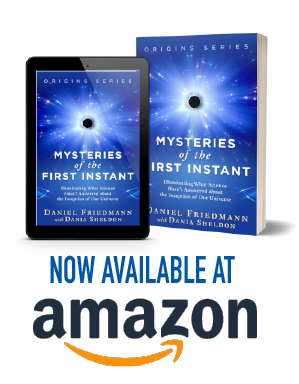In Genesis we learn that most acts that brought about the universe and life are acts of formation- making something from something else, e.g. making stars from hydrogen. The whole Genesis account only contains three acts of creation – making something from nothing. In particular the very first act when everything starts is a creation of something from nothing.
Now this seemed a foreign idea in the scientific world not too long ago. However, today a widely supported hypothesis in modern physics is the zero-energy universe, which states that the total amount of energy in the universe is exactly zero. This turns out to be the only kind of universe that could come from nothing.
Recently scientists from CERN met to talk science and religion! Below is one scientists summary of the something from nothing issue
In recent years, physicists have begun to anticipate that the matter that composes the entire visible universe might have been created spontaneously – a mere consequence of the instability of empty space. Superficially, then, it might seem that we have the answer: there is something rather than nothing because “nothing” is unstable (rather in the way that a pencil balancing precariously on its point is unstable). That is pretty exciting stuff, but it isn’t really an answer to the question and, in any case, “nothing” in quantum physics is far from that – it is a seething maelstrom of activity, to the extent that one might view the substantial universe we inhabit as the froth on top. Awestruck as I am by the laws of physics, no amount of wishful thinking can allow me to make the mistake of supposing that a law by itself can ever create anything. In addition to being unable to conjure up material existence, the laws of physics cannot create meaning either.
Science and religion are coming closer together.
To find out more about creation of something from nothing- check out The Genesis One Code.
To read the full article quoted above see http://www.guardian.co.uk/science/2012/oct/28/science-religion-life-universe-questions

